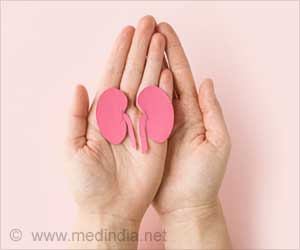A relatively small proportion of individuals with hypertension (high blood pressure) eat diets that align with government guidelines for controlling the disease.
A relatively small proportion of individuals with hypertension (high blood pressure) eat diets that align with government guidelines for controlling the disease, according to a report. In fact, since the introduction of a diet shown to help reduce blood pressure, the dietary quality of those with hypertension has decreased.
Results of the Dietary Approaches to Stop Hypertension (DASH) trial, published in 1997, indicated that a diet high in fruits, vegetables and low-fat dairy products could significantly lower blood pressure, according to background information in the article. Subsequent studies found that this eating pattern complements other lifestyle changes, such as reducing sodium and losing weight, and can help lower cholesterol levels and prevent components of the metabolic syndrome. The DASH diet is recommended by the Joint National Committee on Prevention, Detection and Treatment of High Blood Pressure for all patients with hypertension.Philip B. Mellen, M.D., M.S., of the Hattiesburg Clinic, Hattiesburg, Miss., and colleagues analyzed data from the National Health and Nutrition Examination Survey (NHANES), conducted by the Centers for Disease Control and Prevention in 1988 to 1994 and 1999 to 2004. Men and women age 20 years and older were interviewed to obtain demographic and socioeconomic information and diet history; their blood pressure was measured, and they were asked if they had ever been diagnosed with hypertension. Using the DASH guidelines, the researchers identified goals for eight target nutrients: total fat, saturated fat, protein, fiber, cholesterol, calcium, magnesium and potassium. DASH scores ranging from zero to nine were calculated for individuals with and without hypertension from the surveys; those who scored a 4.5 or higher were considered to be following the diet.
Among individuals surveyed in 1999 to 2004, 4,386 (28 percent) had been diagnosed with hypertension. These individuals had an average DASH score of 2.92 (compared with 3.12 among those without high blood pressure), and only 19.4 percent followed the diet. Compared with those surveyed in 1988 to 1994, 7.3 percent fewer individuals with hypertension followed the DASH diet, reflecting fewer patients who consumed target levels of total fat, fiber and magnesium. DASH scores were lowest among young people, African-Americans and those with a body mass index of 30 or higher.
The findings suggest “that the diet of Americans with hypertension has not been greatly influenced by the results and recommendations emerging from the DASH trial and instead reflects secular trends in the dietary patterns of the overall population,” the authors write. “Moreover, the DASH score was lower in subgroups likely to receive the greatest benefit from the DASH diet—African Americans and obese individuals. As data continue to accrue on the optimal diet to reduce risk in patients with hypertension, it is imperative that national guideline recommendations be complimented by research and policy initiatives that seek to effectively implement this knowledge.”
Source-Eurekalert
SRM/L











